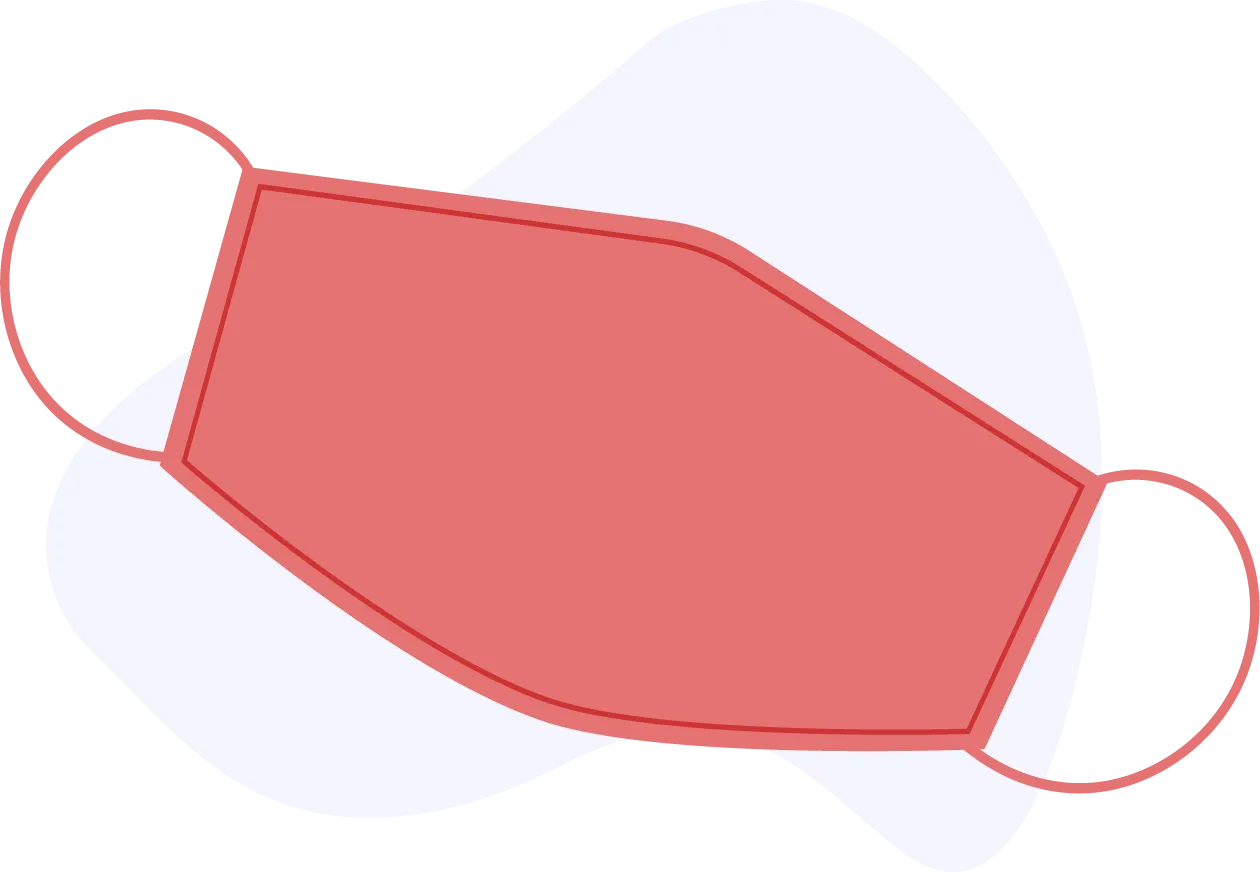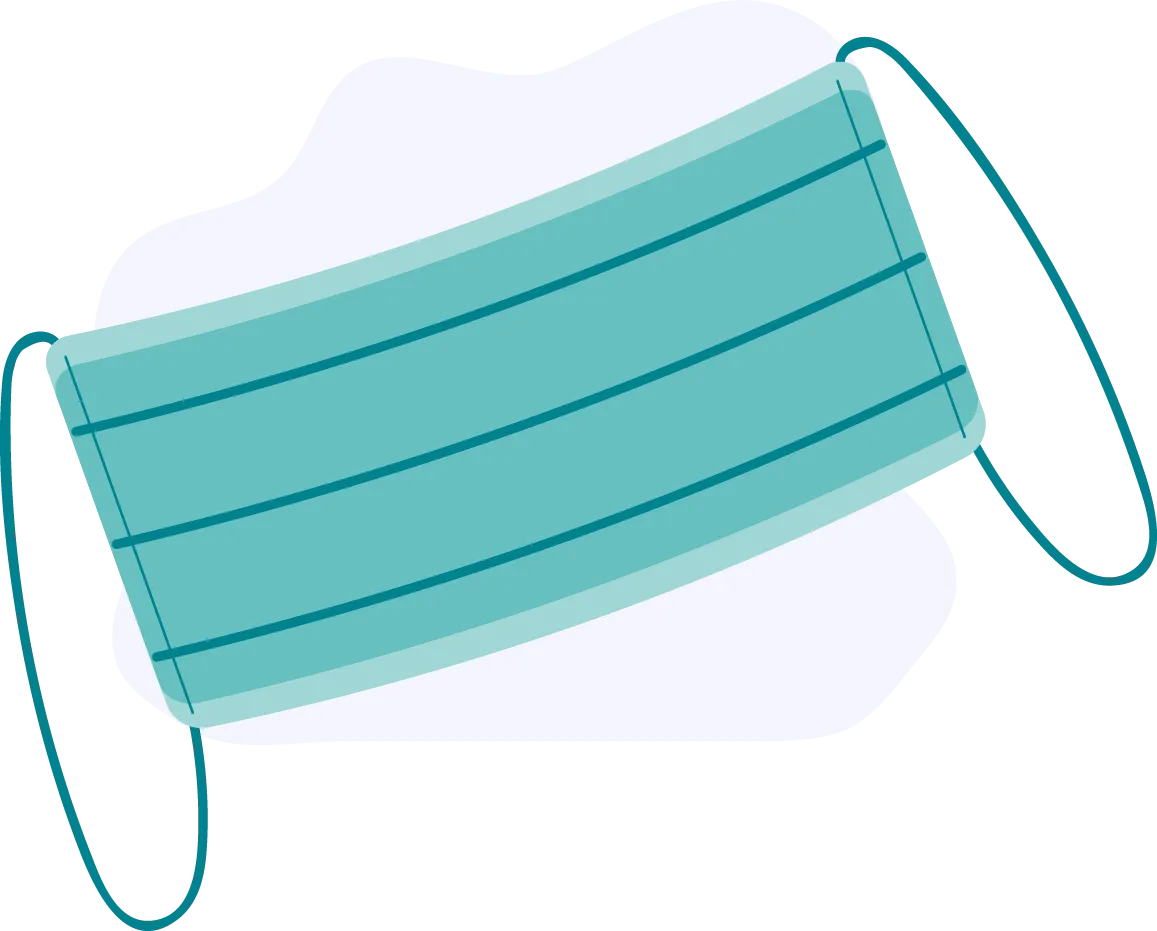Homeopath | 6 min read
Know About Proper Usage, Disposal and Reuse of Mask
Medically reviewed by
Table of Content
Key Takeaways
- Depending on your exposure to people and the environment you’re in, there are 3 main types of masks to choose from
- To help you employ the best practices when it comes to mask usage, disposal, and reuse, take a look at these pointers
- Whether it is a disposable face mask or an N95 respirator, knowing how to use and dispose masks is vital information
Given how infectious COVID-19 is, it is important that you employ sound protective measures. Good personal hygiene and a conscious effort to minimise physical contact are two of the best ways to keep the virus from spreading. However, in the event that you do need to interact with other people or live or work in close, crowded spaces, wearing a face mask is critical. Depending on your exposure to people and the environment you’re in, there are 3 main types of masks to choose from: cloth, N95 respirators and surgical masks.
All 3 mask types have specific uses and reusability norms, and demand different practices when it comes to safe disposal. This is true also for the easily-available surgical disposable face mask as improper disposal by an infected person can actually cause it to contaminate the area it has been disposed in. Moreover, ¬ proper mask usage is of key importance to those exposed to large crowds or those that work in essential services as this can limit the spread of the virus.
Additional Read: Critical care measures to take for COVID-19To help you employ the best practices when it comes to mask usage, disposal, and reuse, take a look at these pointers.
- Cloth masks
Cloth masks offer basic protection and wearing one is the bare minimum you can do to curb the spread of COVID-19. A cloth mask shields you against large virus-laden droplets. While smaller ones may get through the intertwined fibres, a cloth mask is better than no mask. However, if you want an added layer of protection, you could use a High-efficiency Particulate Air (HEPA) filter along with your cloth mask. It is important to note that this may increase the difficulty in breathing freely but will shield you better.

- Surgical masks
Surgical masks offer some level of protection against large particle and are made out of polypropylene. This type of mask can be effective in blocking out sprays, splashes, particulate droplets with germs from reaching your nose and mouth. However, this disposable face mask does not block small particles in the air that have been transmitted through coughing or sneezing. When no N95 masks are available, surgical masks can be used to gain some level of protection.

- N95 respirator masks
The N95 respirators are industry-grade masks to be worn by medical personnel and frontline workers. For this mask, benefits include air filtration against large and small particles when you, the wearer, inhale. N95 masks are designed to block 95% of very small particles. However, unfiltered air escapes through the valve of N95 masks and so, if you have the virus, there is risk of you spreading it.

- Cloth masks
Cloth masks can be reused quite easily and freely. Here, all you need to do is ensure that you wash the mask regularly, disinfect it and let it dry completely. Drying a cloth mask is very important and shouldn’t reuse on until it is fully dried and moisture-free.
- Surgical masks
Given that these are usually meant to be used as disposable masks, it is recommended that you dispose a surgical mask after using it once. However, because of shortage extended usage can be considered. If the surgical mask is dry and has maintained its shape after use, you may be able to reuse it. Storing the mask involves placing it in a clean and breathable container. However, do note that a surgical mask must be reused by the same person and you shouldn’t touch the inside of the mask to avoid contamination.
- N95 respirator masks
These masks are usually worn by those at risk of exposure and in addition to storing them in dry, clean, breathable containers, such as paper bags, in between uses, here are some helpful pointers. To begin, after use, if dry, not damaged, and uncontaminated, the N95 respirator mask must be sealed away for at least 3 days. This ensures that the virus does not survive at any costs. So, ideally, you should have 4 N95 masks and rotate through them with 3-4 days gaps.
An alternate solution is to sterilise the N95 mask in an oven. Here, you hang the mask in an oven using a clip at 70°C for 30 minutes. Once done, you may reuse the mask. For both these methods, you should only reuse such as mask for a maximum of 5 times before purchasing a new one.
Disposal
In order to avoid further contamination, disposing used masks properly is absolutely vital. To go about it in the right way, here are a few pointers.
- Cloth masks
With such masks, the best option is to properly wash, disinfect and dry them before throwing them away. Avoid simply discarding them amongst trash as the virus can survive on surfaces for up to a few days.
- Surgical Masks
To properly dispose these masks, here is a simple step-by-step procedure to follow.
- Keep a waste bag handy
- Remove the mask chin up without touching the inside of the mask
- Fold it into half, covering the inside of the mask. Then fold it into half, to look like a roll, covering the outside surface.
- Use the ear loops to tie it up so that it doesn’t unravel
- Wrap the mask in either tissue or a polythene bag
- Put it in the waste bag and dump in a medical trash can
- N95 respirator masks To dispose these masks, all you need to do is follow these simple steps.
- Remove the mask carefully so as to avoid touching the outside and inside surface
- Place the mask inside a zip-lock bag or a plastic bag
- Secure the bag well
- Dispose it in a medical-waste unit
- Wash your hands thoroughly
Whether it is a disposable face mask or an N95 respirator, knowing how to use and dispose masks is vital information. This way, you not only protect yourself with the best practices, but also educate loved ones.
With proper mask usage, hopefully, society will be able to stop COVID-19 in its tracks!
References
- https://scitechdaily.com/how-effective-are-cloth-masks-against-coronavirus-video/
- https://www.narayanahealth.org/blog/know-about-proper-usage-disposal-and-reuse-of-mask/
- https://www.mayoclinic.org/diseases-conditions/coronavirus/in-depth/coronavirus-mask/art-20485449
- https://www.narayanahealth.org/blog/know-about-proper-usage-disposal-and-reuse-of-mask/
- https://www.mayoclinic.org/diseases-conditions/coronavirus/in-depth/coronavirus-mask/art-20485449
- https://www.mayoclinic.org/diseases-conditions/coronavirus/in-depth/coronavirus-mask/art-20485449
- https://www.mayoclinic.org/diseases-conditions/coronavirus/in-depth/coronavirus-mask/art-20485449
- https://timesofindia.indiatimes.com/life-style/health-fitness/health-news/should-you-re-use-or-wash-your-face-masks-here-is-a-guide-for-properly-re-using-the-masks/articleshow/75023041.cms
- https://www.narayanahealth.org/blog/know-about-proper-usage-disposal-and-reuse-of-mask/
- https://www.osfhealthcare.org/media/filer_public/6e/7c/6e7c3b47-5b40-4e32-b028-8b6b9e1bd4db/n95_reuse_guide.pdf
- https://timesofindia.indiatimes.com/life-style/health-fitness/health-news/should-you-re-use-or-wash-your-face-masks-here-is-a-guide-for-properly-re-using-the-masks/articleshow/75023041.cms
- https://www.osfhealthcare.org/media/filer_public/6e/7c/6e7c3b47-5b40-4e32-b028-8b6b9e1bd4db/n95_reuse_guide.pdf
- https://timesofindia.indiatimes.com/life-style/health-fitness/health-news/should-you-re-use-or-wash-your-face-masks-here-is-a-guide-for-properly-re-using-the-masks/articleshow/75023041.cms
Disclaimer
Please note that this article is solely meant for informational purposes and Bajaj Finserv Health Limited (“BFHL”) does not shoulder any responsibility of the views/advice/information expressed/given by the writer/reviewer/originator. This article should not be considered as a substitute for any medical advice, diagnosis or treatment. Always consult with your trusted physician/qualified healthcare professional to evaluate your medical condition. The above article has been reviewed by a qualified doctor and BFHL is not responsible for any damages for any information or services provided by any third party.





